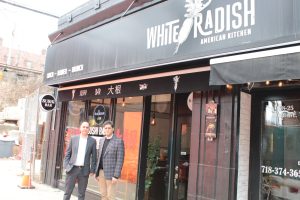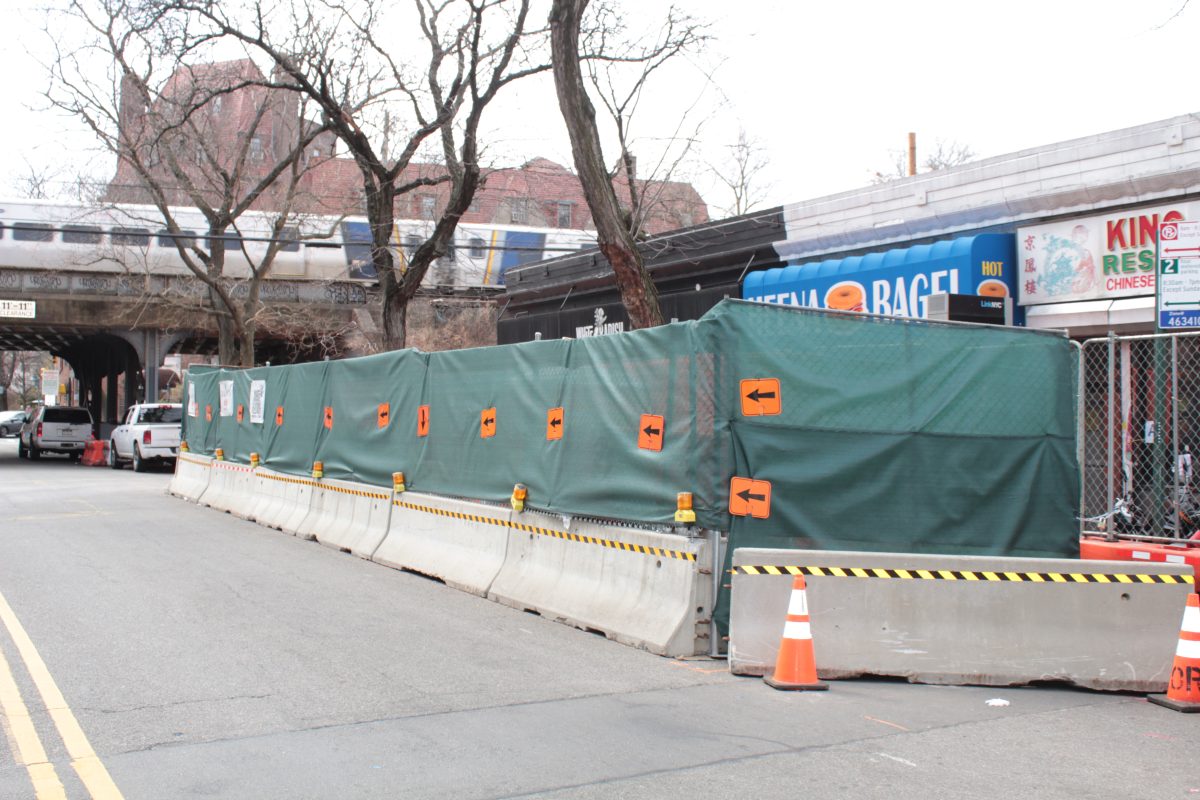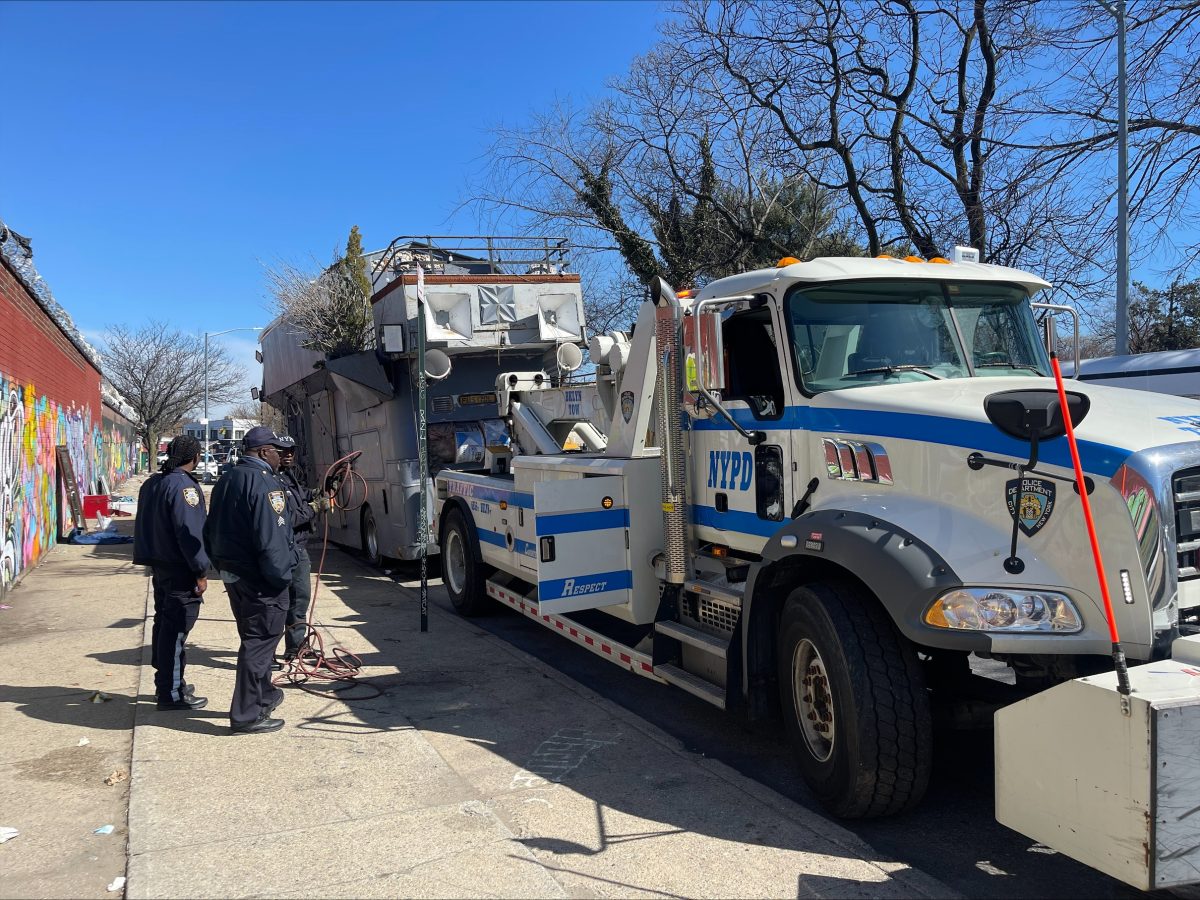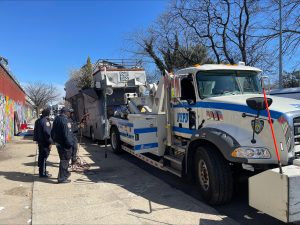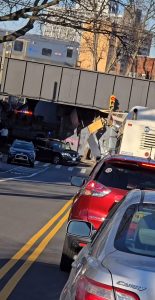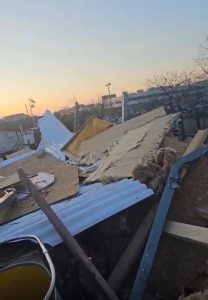Forest Hills Restaurateur Battles Construction Woes, Fights to Keep Doors Open
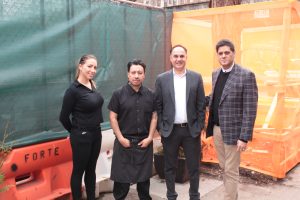
MOHAMED FARGHALY
mfarghaly@queensledger.com
Puneet Singh had high hopes for his expanding culinary vision on Ascan Avenue. After the runaway success of his restaurant, White Radish, a farm-to-table American kitchen, which opened in the fall of 2020 and thrived through the turbulent years of the pandemic, Singh decided to double down. In late 2023, he signed a lease to expand to Daikon Sushi Room next door, investing over $400,000 into the sleek new spot at 108-23 Ascan Avenue.
The expansion was supposed to be a lucrative move. But what should have been a promising new chapter for Singh’s businesses instead turned into a nightmare of financial stress and dwindling customer access.
It all began in April 2024, when the MTA launched construction work directly in front of Singh’s establishments. The project, intended to build a new ADA-accessible ramp for the 71st Continental Avenue Long Island Rail Road station, quickly became a source of frustration and financial turmoil.
“They just came and dropped off the paperwork to notify notify us, and that there was no time frame given to us, whether it was going to take up to three months, six months or a year.” Singh said. “They put all these barricades up, they put the fencing up, the sidewalk was closed, and they had detour signs directing people away from the area.”
Throughout the summer of 2024, the barriers remained, stifling foot traffic and cutting deep into the restaurant’s revenue. Singh missed revenue targets and fell behind on rent, payroll, and sales tax obligations. The construction site, which was supposed to be temporary, turned into a drawn-out disaster.
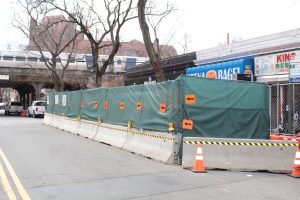
“People do not want to cross a construction zone to get to a restaurant,” Singh said. “You have metal barricades, cranes, construction equipment, and danger signs everywhere. It’s not inviting. They put up even more barriers and took away parking spots. We were losing our customers.”
By August 2024, the barricades were removed after the project was halted due to budget restrains. But the damage was already done. The prime summer season had slipped away, dragging White Radish and Daikon Sushi Room into financial quicksand. While sales began to recover slightly, they remained far below the expected targets.
Just as things started to look up, construction crews returned three weeks ago in early 2025. The barricades, fencing, and trucks are back, and Singh’s frustration is mounting.
“They came back and installed everything again,” Singh said. “They just showed up one morning and started putting everything back up. The permit says three months, but I don’t trust that. Last time, they said it was temporary, and it lasted months. This could drag on for a year or more.”
The ongoing construction has made it nearly impossible for regular customers to return to White Radish and Daikon Sushi Room. With the large green barricades blocking the storefronts, passersby in Forest Hills can no longer see the restaurants, making it difficult to capture the attention of new customers. The constant disruption has caused loyal patrons to avoid the area, while potential diners are unaware of the businesses altogether. As a result, attracting new customers and maintaining steady foot traffic has become an overwhelming struggle.
The renewed construction has already caused further declines in revenue. Singh fears he may lose both of his businesses, which employ local Queens residents and contribute to the neighborhood’s charm.
Due to the ongoing construction disruptions and dwindling business, the number of employees has been cut from 24 to just 14. With revenue dropping significantly, the restaurants have also had to reduce their hours of operation. To make matters worse, the barriers are often moved in the evening, blocking additional parking spaces and further deterring potential diners from stopping by. The lack of foot traffic and customer demand has forced these tough decisions, making it increasingly difficult to sustain the businesses and provide steady work for the remaining staff.
What was once a charming spot for families and friends to gather and enjoy a meal has now become an unpleasant experience due to the constant construction. The noise from the work is so loud that it makes conversation nearly impossible, and the vibrations from the machinery often shake the walls of the restaurants. Adding to the discomfort, a diesel truck frequently pulls up to the construction site, filling the air with a strong, unpleasant odor that drifts into the storefronts, further ruining the dining atmosphere.
“We swallowed the losses last year, this year, we’re just trying to catch up on our bills,” Singh said. “I’ve invested everything into these restaurants. If this keeps on going like this, there is no way we will be able to sustain for another year or so.”
Singh is demanding immediate action: the removal of the barricades and restoration of access to his restaurants, along with formal discussions about financial compensation for the losses incurred.
“We need them to just move this away from our restaurant, there’s an empty store across the street,” Singh said. “There’s a lot of space which is not being used. They should, first of all, remove this barrier, and should cover up our damages.”
Singh has reached out to the MTA multiple times, but they have not been cooperative on the construction aspect. However, he is scheduled to meet with the Senior Director of Public Affairs later this week to discuss the issue.
Until then, he remains in a holding pattern, pouring money into his businesses in the hope that, one day, the view from Ascan Avenue will be clear again.
As White Radish remains caught in construction limbo and fights for support, readers can continue to visit the two storefronts at 108-25 Ascan Ave, Forest Hills, to support a local business during this challenging time.
